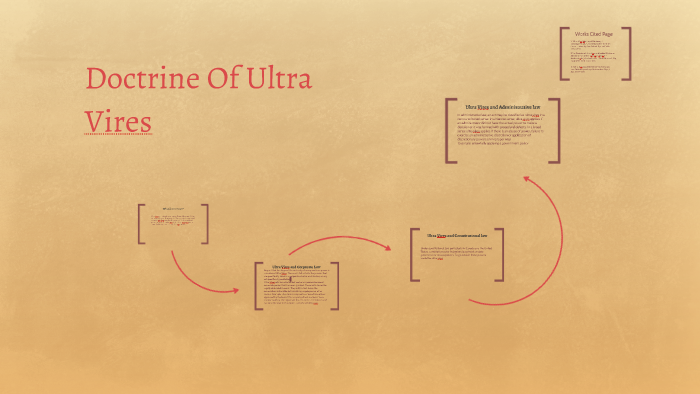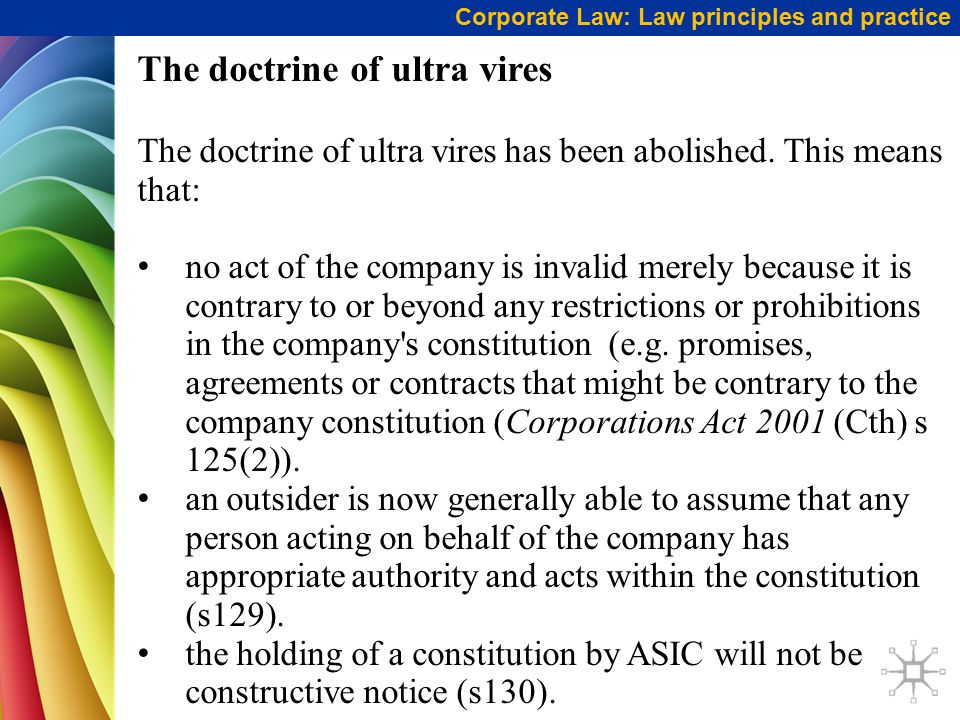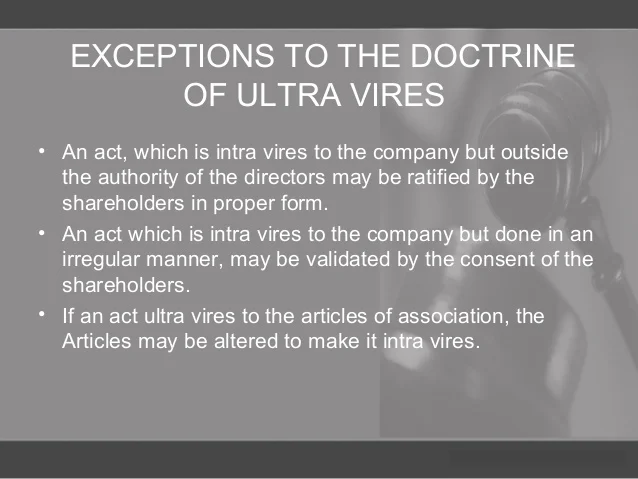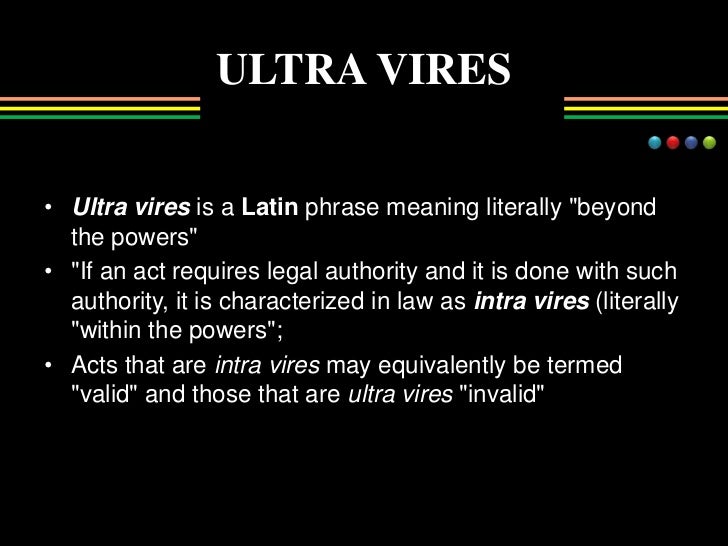Doctrine Of Ultra Vires In Administrative Law

The doctrine of ultra vires is the basic doctrine in administrative law.
Doctrine of ultra vires in administrative law. Doctrine of ultra vires. The ultra vires act is completely different from an illegal act. Beyond the powers is a latin phrase used in law to describe an act which requires legal authority but is done without it. Acts that are intra vires may equivalently be termed valid and those that are ultra vires termed invalid.
This doctrine can be considered as the central principle in the whole of administrative law. The ultra vires act is void act and therefore it cannot be ratified even if all the directors of the company want to ratify the same. If the administrative authority fails to follow required procedure prescribed by parent act or by the general rule it is known as procedural ultra vires. An action of the authority is intra vires when it falls within the limits of the power conferred on it but ultra vires if it goes outside this limit.
It states that the objects of a company as specified in its memorandum of association can be departed from only to the extent permitted by the act. The company being an artificial person its objects and powers are specified in the memorandum of association moa of the company. The doctrine of ultra vires is produced by the constitutional principles of the rule of law the sovereignty of parliament and the independence of the judiciary. The doctrine of ultra vires is a fundamental rule of company law.
To apply the doctrine of ultra vires the first question for the courts to decide is whether the provision in the act prescribing the procedure is mandatory or directory. The concept of ultra vires in the company law the ultra vires mean to go beyond the object clause of a memorandum of association of a company. There are three types of ultra vires acts which. Types of ultra vires acts.
The motive behind the doctrine of ultra vires is to protect the investors and creditors of the company. The ultra vires doctrine is a kind of insurance policy that reassures a company s shareholders and creditors that the company will not use their assets or funds for any purposes other than those that are afforded to it and specified within the ultra vires doctrine. The doctrine envisages that an authority can exercise only so much power as is conferred on it by law.

















